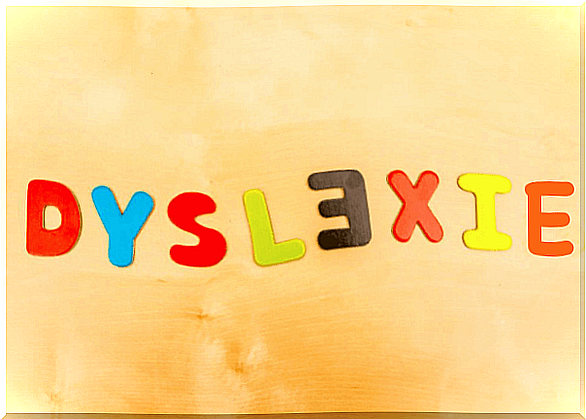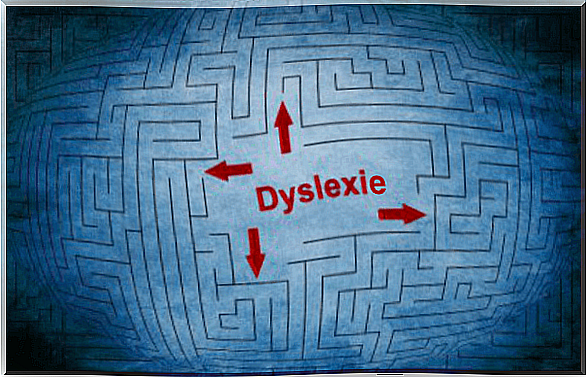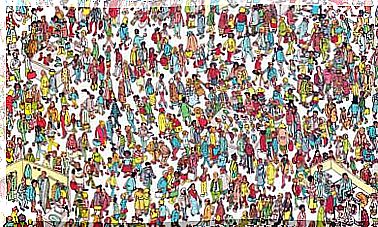What Is Dyslexia?

What is certain is that when parents are told that their child is suffering from an illness, disorder or other, their first reaction is a real shock.
Often, the love that we feel for our child as well as an ignorance of the disease about which the specialist tells us, can make us see the problem in a disproportionate way.
However, sometimes these obstacles can represent great opportunities for us, parents, and for our children …
This is why we want to talk about dyslexia today, because it is important for you to be aware that if you or your child has it, you should not put up barriers.
Indeed, you can get everything you want and if you doubt it, know that the founder of IKEA is dyslexic … and many others!
What is dyslexia
The earliest descriptions of dyslexia date back about over a hundred years.
Since then, debates have ensued as to the exact definition, diagnosis and treatment of this disorder.
To date, the most adequate definition is as follows (International Association of Dyslexia, 2002):
“ Specific learning difficulty, of neurobiological origin, characterized by difficulties in recognizing words accurately and fluently, and by spelling and decoding problems. These difficulties generate a deficit of the phonological component “.
It is not a disease, so there is no cure for it.
The brain of a dyslexic has differences. Indeed, certain areas of the brain (particularly the upper temporal area of the left hemisphere, responsible for the phonological process and the occipito-temporal area, responsible for forming visual representations of words) function differently.
It is believed that this disorder is due to an abnormality in the functioning of certain genes during embryonic development.
Luz Rello and dyslexia
Luz Rello suffers from dyslexia and is an expert in the field. Thanks to her, today there is a new application called “Piruletas”, which consists of a series of exercises and games to help people who have difficulty.
Thanks to this exercise, the spelling seems to improve significantly!
Here is also DysWebxia, an application for adapting texts to people with dyslexia. Thus, children can read faster.
The Spanish blog “Mis disléxicos”
María started this blog two years ago with the help of her daughter. As she herself said: “I was desperate, stressed and wanted to free myself, convinced that only members of my family would read this blog”… María has 6 children, and all of them are dyslexic.
But to her surprise, views grew and many mothers of children with dyslexia visited her blog.
His eldest son is now studying telecommunications engineering – this is a great example of what you can accomplish, even if you have dyslexia.

Some recommendations for people with dyslexia
– The best way to help a dyslexic child is to give him the right tools to compensate for the difficulties he has when confronted with words.
These tools should give him confidence and courage to overcome this small obstacle and move forward.
– The earlier you detect that your child is having difficulties, the better he will be able to work on this disorder and generate the necessary tools.
– Parents must remain calm and not oversize the problem, nor close their eyes by underestimating it .
It is essential to be aware that it is necessary to act in case of doubt, because if the problem is confirmed and present, it would not go away on its own.
– Act jointly with those involved in your child’s education : teachers, members of your family; everyone can and should get involved. You have to act early to see results quickly.
Limits are only found where you place them …
Steven Spielberg, Patrick Dempsey (alias “Doctor Mamour” in Grey’s Anatomy) or even the founder of IKEA are dyslexic!
The handsome Patrick Dempsey admits: “ It is difficult for me to read the scripts… But I never give up ”. This is how the actor manages to capsize our hearts through the screen!
Let’s end this article with a quote from Luz Rello, which I hope will help you: “ College is the most difficult stage for a person with dyslexia. But one day it will all be over. Courage! After college you can study wherever you want, be whoever you want and use all the tools you need ”.









